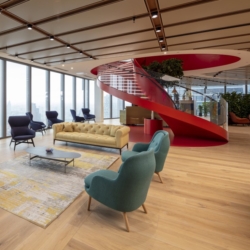May 30, 2024
People are more loyal to employers in the Asia Pacific region than Europe and the US
 Employees’ commitment to their employer varies greatly by region, a new global report has found. According to nudge’s annual Global Financial Wellbeing Report [registration], which surveyed 11,500+ people around the world, how valued employees feel at work varies significantly from East to West. In Europe, attitudes appear to be more cynical in relation to loyalty in the workplace. Two thirds (66 percent) of employees in the UK believe that companies view workers as ‘interchangeable’ and ‘easily replaceable’, followed closely by France (62 percent), Spain (58 percent) and Italy (54 percent). More →
Employees’ commitment to their employer varies greatly by region, a new global report has found. According to nudge’s annual Global Financial Wellbeing Report [registration], which surveyed 11,500+ people around the world, how valued employees feel at work varies significantly from East to West. In Europe, attitudes appear to be more cynical in relation to loyalty in the workplace. Two thirds (66 percent) of employees in the UK believe that companies view workers as ‘interchangeable’ and ‘easily replaceable’, followed closely by France (62 percent), Spain (58 percent) and Italy (54 percent). More →

































May 29, 2024
Not luddite dinosaurs but the sensible voice of caution on AI. And you need to listen
by Stephanie Fitzgerald • AI, Comment, SF, Technology